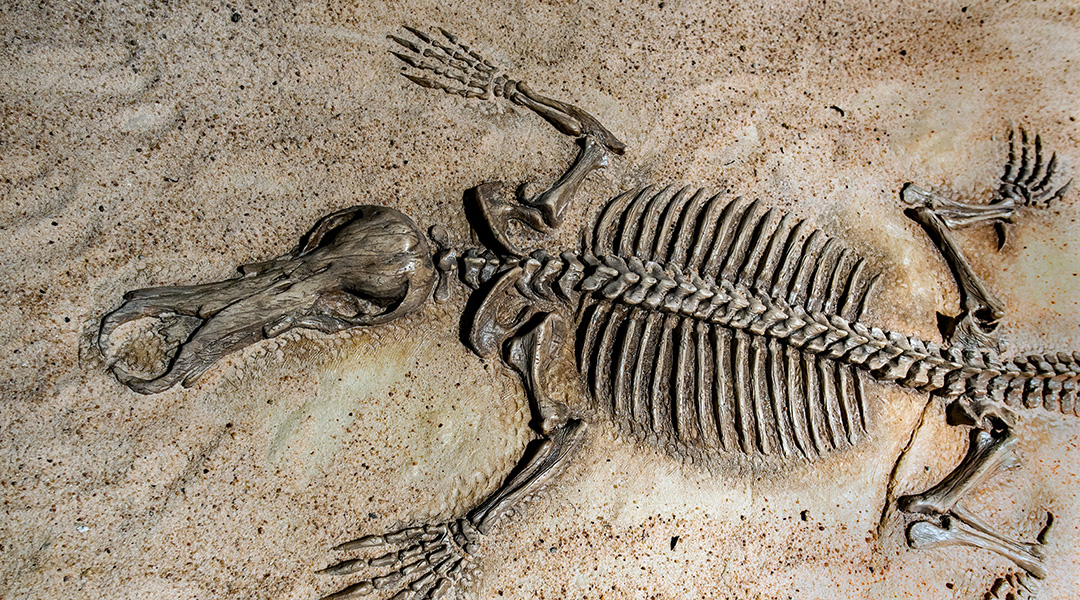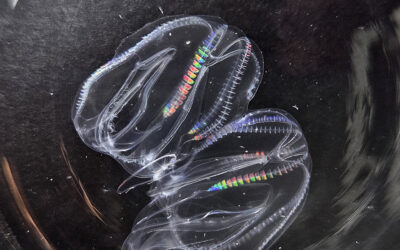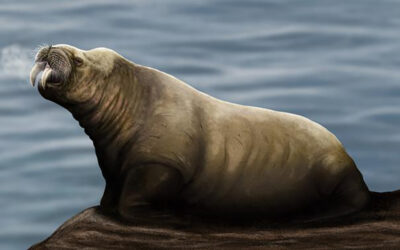Aging is part of life and death is inevitable. But why is it that aging varies among different groups of animals? The answer, according to João Pedro de Magalhães, chair of molecular biogerontology at the University of Birmingham, dates back to mammals’ early relationship with dinosaurs and the evolutionary consequences of that relationship.
For 160 million years, dinosaurs ruled the Earth, overshadowing our early mammalian ancestors who did not resemble the lions, elephants, and whales that we see today. For a large part of their history, they were tiny and relentlessly hunted by larger predators.
This historical fact, Pedro argues, led to the accumulation of mutations and inactivation of genes associated with long life. “During this time, there was no reason for mammals to keep processes and genes related to long life, such as DNA repair and tissue regeneration systems,” he explained in an article published in The Conversation. “My longevity bottleneck hypothesis proposes that repair and regeneration systems were lost, mutated, or inactivated during the evolution of early mammals.”
Why reproduction matters when it comes to aging
The term “survival of the fittest” is one of the most overused phrases in evolutionary theory. It is incomplete, with a more accurate statement taking the form of “survival of the most reproductively fit”.
To think about why aging or disease exists in the first place, it is important to understand that passing genes along to the next generation is what makes an animal “successful” in the wild. This means that traits expressed during the early stages of life, leading up to and during sexual maturity, are what nature primarily selects for.
Take, for example, the life cycle of a mouse. Mice reach sexual maturity at a very young age and tend to have many offspring. If a mouse dies young but has had many offspring, it is technically successful in the context of evolutionary theory as it has passed on many copies of its genes to the next generation who will continue to pass on their genes as long as they continue to express the traits that made the parental generation successful.
If a mouse develops cancer at the age of two after rearing 20 offspring, the gene that causes cancer in that mouse is unlikely to be selected against as the new generation continues to live and reproduce just as their parents did. This process and selection for a live fast, breed, and die young lifestyle, argues Pedro, may have been widespread among mammals during the reign of the dinosaurs.
Alternatives to longevity
As with all scientific inquiry, this hypothesis does not come without its due scrutiny. “I am extremely skeptical,” said Rutger Vos, a bioinformatician at the Naturalis Biodiversity Center in Leiden, The Netherlands, who was not involved in the study.
“There are too many confounding variables (e.g. body mass, warm-blooded or not) and it’s such a long time span that the dinosaur effect should have worn off if there is some advantage to longevity,” he continued.
There are other explanations circulating among experts as to why mammals live shorter lives. One posits that it could simply be due to mammals’ elevated body temperature as it has been demonstrated that animals with lower body temperatures tend to live longer because, theoretically, their metabolisms are slower and thus so are their rates of aging. But there are also inconsistencies in the evidence associated with this idea as birds have higher body temperatures than mammals and still outlive them.
Pedro admits that his hypothesis is speculative and that more research is required to gain a better molecular and genetic perspective in determining how longevity and aging operate.
“In addition, future studies are warranted to investigate whether other repair, defense, or regeneration systems were lost or inactivated in mammals, and obtaining more evidence to support the proposed — and admittedly speculative — hypothesis is necessary,” he wrote. “Recent genome sequencing efforts have opened the door for large-scale comparative analyses of longevity evolution, and it should be possible to test the longevity bottleneck hypothesis using evolutionary genomics in the years ahead.”
Reference: João Pedro de Magalhães, The longevity bottleneck hypothesis: Could dinosaurs have shaped ageing in present-day mammals? BioEssays (2023). DOI: 10.1002/bies.202300098
Feature image credit: David Clode on Unsplash

















